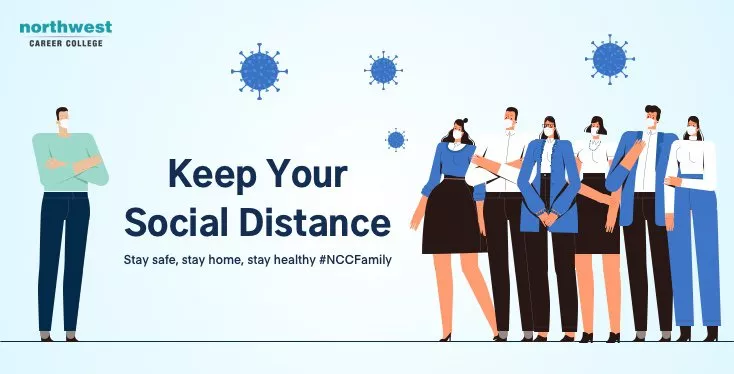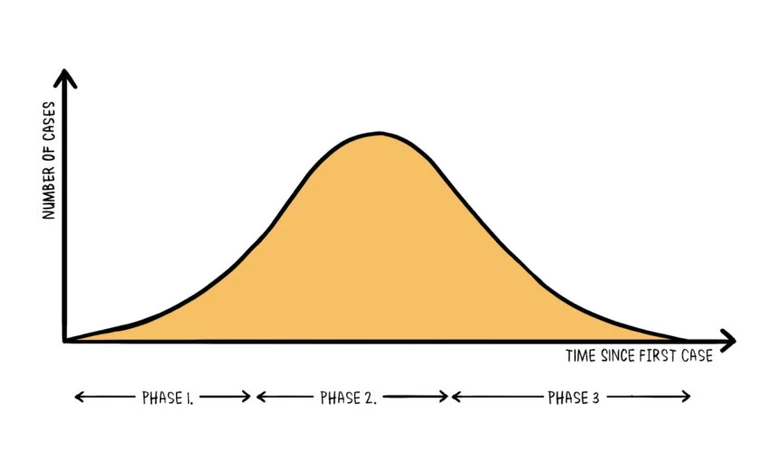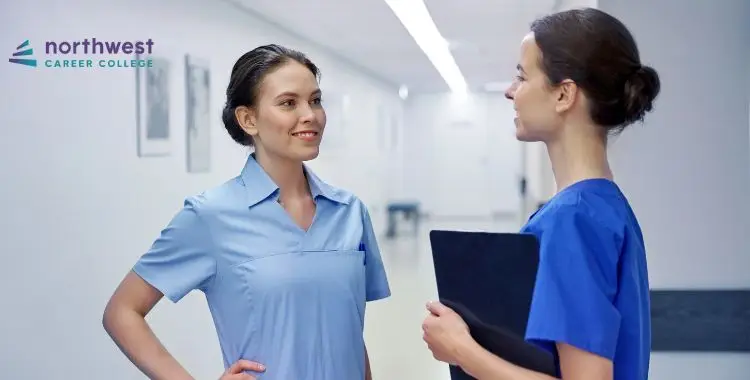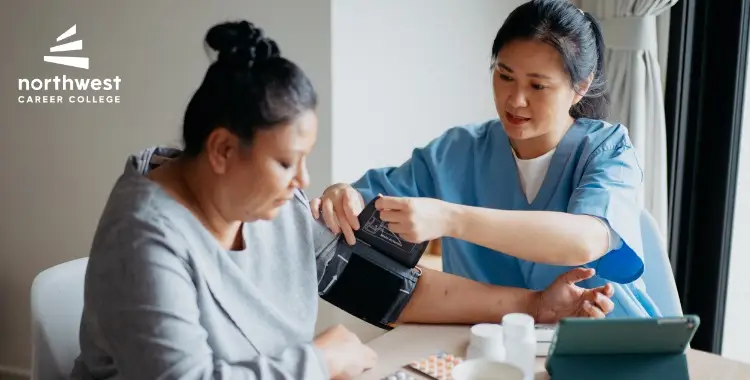How To Socially Distance Yourself During The COVID-19 Outbreak?
- March 11, 2024
- 3.4k views
- 5 min read

Many countries around the world, including the US, have now put social-distancing policies in place to attempt to curb the spread of the COVID-19 coronavirus.
Unfortunately, some of the advice, and terminology, related to social-distancing can be confusing and, in places, seem contradictory.
In this article, we’ll be breaking down what exactly social-distancing means, what you can do to socially-distance, why it’s different from self-isolation, how it can slow the spread of the virus, and where you can get the most accurate and up to date information.
Read More: Staying Healthy While Socially-Distancing
What Is Social-Distancing
Simply put, social-distancing is the practice of limiting your contact with other people. This might mean working from home, not physically socializing, not going to large gatherings, staying at home as much as possible, and avoiding physical contact with others.
The terms social-distancing and self-isolation are often used interchangeably but are, in fact, quite different.
Social-distancing limits physical contact to prevent the potential spread of disease in a community. Self-isolation separates those who are sick, or who have potentially been exposed to a disease, from everyone else, even those in their own home.
For example, if you are currently staying at home as much as possible, but are not unwell, you are socially-distancing.
If you have fallen ill recently or been potentially exposed to COVID-19 and have been asked not to leave the house by a medical profession, you are self-isolating.
Why Do We Need to Socially-Distance?
Social-distancing is vital to what the Centers for Disease Control and Prevention (CDC) refer to as “flattening the curve.” As you can see from the graphic below, flattening the curve means slowing the spread of the virus to prevent our healthcare system from being overwhelmed by the influx of new cases.

Source: Spinoff.co.nz under a CC-BY-SA license
In Italy, one of the countries hardest hit by COVID-19, the number of confirmed cases of COVID-19 doubled from 10,000 to 20,000 in just four days during March.
This sudden influx of new cases overwhelmed the Italian healthcare system, despite the heroic actions of their healthcare workers, and is considered by many to be the reason that Italy’s COVID-19 death rate, roughly 7%, is double the global average.
Social distancing helps to flatten the curve during disease outbreaks, reducing the strain on hospitals and saving lives.
How Do I Socially-Distance Myself?
Many countries, and states in the US, have already issued “shelter at home” declarations restricting the movement of people and canceling large public gatherings.
Individuals can assist in these measures, put in place to prevent the further spread of COVID-19 and support our healthcare providers, by staying at home as much as possible, avoiding unnecessary contact with others and keeping around 2 meters from other people, where possible, to prevent the spread of infection.
In addition, both the World Health Organization (WHO) and the CDC have published the following guidelines to help prevent the spread of COVID-19:
- Wash your hands often for at least 20 seconds.
- Cover your cough or sneeze with a tissue, then throw the tissue in the trash.
- Clean and disinfect frequently touched objects.
- Stay home when you are sick.
- Contact a health worker if you have symptoms; fever and a dry cough are most common.
- DON’T touch your face.
- DON’T travel if you have a fever and cough.
- DON’T wear a face mask if you are well.
Where Should I Seek Advice?
The best places to look for news or updates on the COVID-19 outbreak are the WHO and the CDC. Both organizations have regularly updated advice and information on the outbreak and there are links to their websites below:
Centers for Disease Control and Prevention
Social-Distancing Shouldn’t Mean Isolation
Despite the clear need to use social-distancing to flatten the curve of the current epidemic, there is always the risk of individuals becoming isolated when their socialization pattern changes.
Thankfully, there are a myriad of ways you can keep connected and keep healthy while still helping our healthcare workers in the fight to overcome COVID-19.
Start Your Career In Medical Assisting Today!
Here at Northwest Career College, we have a student-focused attitude that prioritizes giving our graduates the training and skillset they’ll need to excel as medical assistants. Our established and seasoned instructors work with you, teaching you every aspect of Medical Assisting.
If you’d like to learn more about what our medical assistant course can offer you, call one of our enrollment specialists at (702) 403-1592 today. We provide flexible learning, with online and on-campus morning, afternoon and night classes to accommodate your Las Vegas work and family schedule. Once you’ve graduated, our dedicated and experienced Career Services team will work with you to help you find the best employment opportunities in Las Vegas. Call us now on (702) 403-1592 to start your journey!



